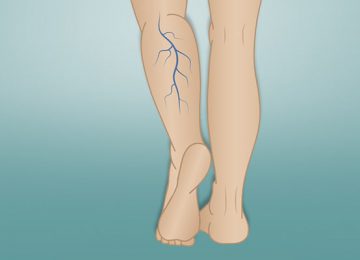
What are the symptoms of mental illnesses?
Mental illnesses can cover a wide range of mental health conditions and they usually refer to disorders that affect your mood, thoughts and behavior. Different examples of mental disorder include: depression, anxiety, schizophrenia, disorders in appetite and addictive behaviors. Many people try to examine their health in this regard over time. But it is also good to note that prevention and being highly concerned about a disease can also be counted as a symptom of other mental disorders such as high stress or incapability of performing daily routines. Mental disorder can potentially cause problems in your daily routines, such as attending classes, work or social activities. In many cases symptoms of this disorder can be treated with a combination of medications and therapies such as psychotherapy.

Take symptoms of mental illnesses seriously
Symptoms of mental illnesses can vary based on disruption, conditions and other factors in each individuals. Symptoms of mental disorders can affect emotions, thoughts and behaviors of patient. These symptoms can include:
- Feeling of sadness
- Scary thoughts
- Not being able to concentrate
- Excessive fear or extreme worries as well as feeling guilty
- Significant changes in the mood
- Resigning from friends and not participating in social activities
- Excessive fatigue, low energy or sleeping problems
- Illusion and separation from real life (imagination)
- Not being able to deal with daily problems and excessive stress
- Difficulty in understanding the situations
- Drinking alcohol or drug usage
- Significant changes in eating habits
- Excessive anger, hostility or violence
- Thinking about suicide

Visiting a doctor
If you have symptoms and signs of a mental illness, you have to visit a first aid specialist or doctor. Most of the mental illnesses cannot be treated without help and in the case of not being treated properly, the situation can get worse over time and eventually result in more serious problems.

Causes of mental illnesses
Mental illnesses are mostly due to different genetic and environmental factors, such as:
- Hereditary attributes of mental disorders are more common in those people with family backgrounds of these type of illnesses.
- Being exposed to environments and situations which are stressful, scary, infected and with the possibility of alcohol or drug usage, is in direct connection to mental illnesses.
- Nervous transducers are natural brain chemicals that carry signals to different parts of brain and body. Any complications in the neural networks can potentially affect its performance and eventually result in depression or other mental disorders.

Prevention
There is no absolute solution for preventing mental illnesses. However, if you are diagnosed with a mental illness, proper methods for controlling the stress and improving the self-confidence can be helpful. You can also follow steps below:
- Paying attention to warning signs. You should consult with your doctor about factors that can provoke you. If you notice changes in your symptoms or emotions, try to talk about that with your therapist.
- Regular treatments. You may have a medical condition regarding your body that should be treated or the side effects of medications you use to this end that have affected your mental conditions.
- Enough sleep, healthy diet and regular exercising are all important and effective and can help you to boost your mood.

Summary:
Mental illnesses are basically conditions that affect emotions, behavior and communication of individuals with their surrounding environment. Symptoms of such illnesses can be minor or intense and can vary from one patient to the other. This complication can make life difficult, but once it is diagnosed and treated, patient’s life can be as normal as before.











Reviews
Number of pending reviews15223